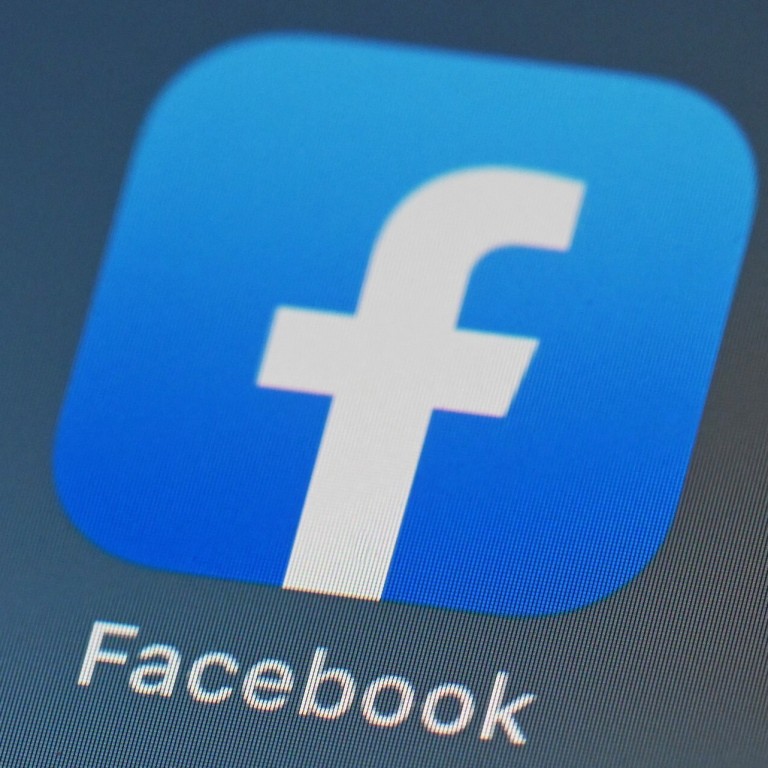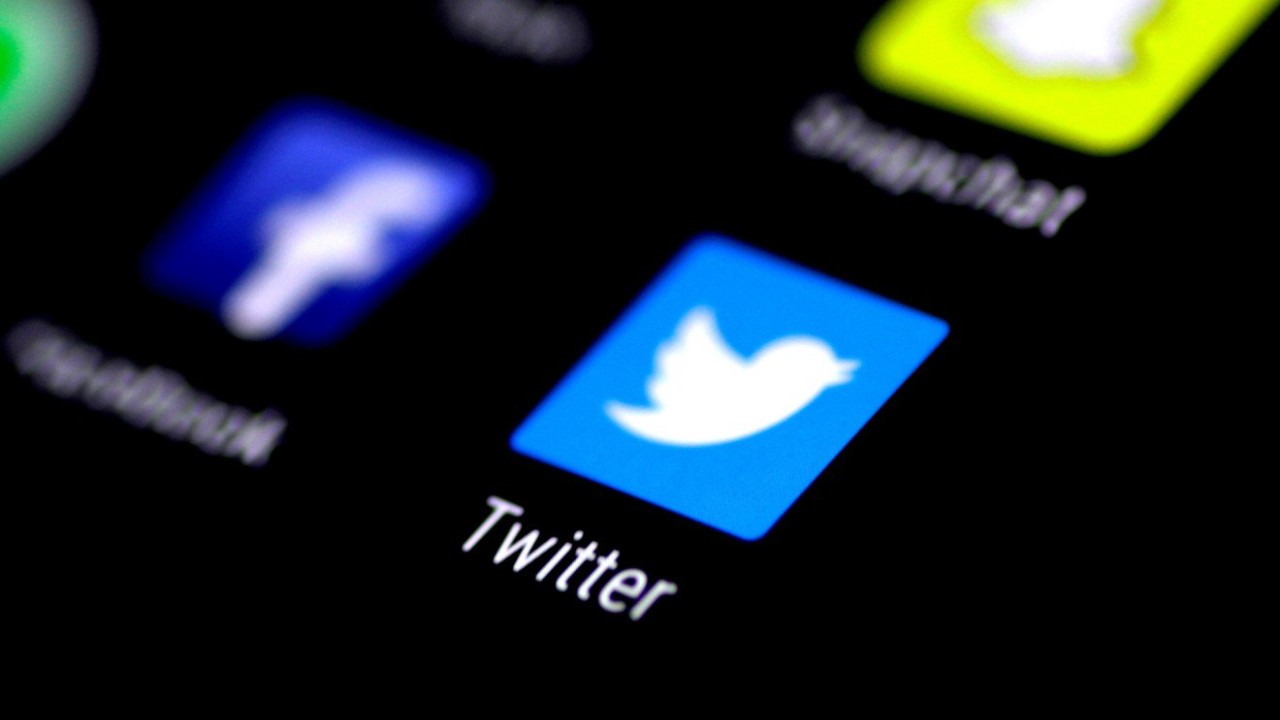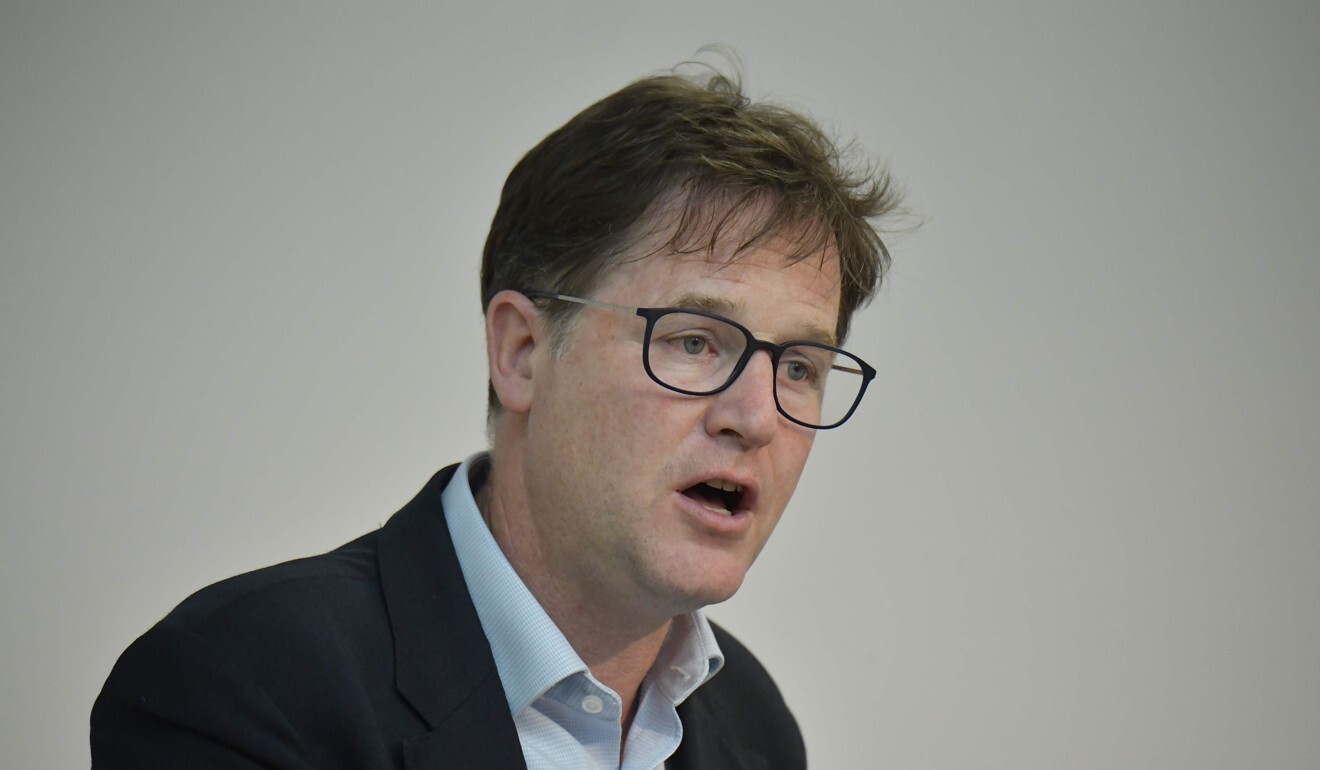
Facebook takes down Chinese accounts active in US and Philippines politics
- The most widely followed accounts were sharing content supporting Beijing’s actions in South China Sea, as well as Philippine President Rodrigo Duterte
- Facebook says it could ‘act aggressively’ to restrict content in case of turmoil after US election
Facebook said on Tuesday it had removed a network of inauthentic Chinese accounts that were interfering in Asian and American politics, including some that posted material supporting and opposing US President Donald Trump.
The social networking company said it suspended 155 accounts on its main platform along with six Instagram accounts.
The most widely followed accounts and pages were in the Philippines, discussing topics including Beijing’s interests in the South China Sea, Hong Kong, support for Philippines President Rodrigo Duterte and his daughter’s potential run in that nation’s 2022 presidential election, as well as criticism of Rappler, an independent news organisation in the Philippines.
Facebook also removed a second network originating in the Philippines. These accounts posted in Filipino and English about local news and events including domestic politics, military activities against terrorism, a pending anti-terrorism bill, criticism of communism, youth activists and opposition, the company said.
The US accounts had fewer followers and posted content fuelling both sides of the American election that will be held on November 3 rather than exclusively supporting one side, the company said.

01:46
Twitter and Facebook suspend 'China-linked' accounts for misinformation
Facebook cybersecurity policy chief Nathaniel Gleicher said that the takedown was the company’s first of Chinese-based accounts on foreign interference grounds with any engagement in US politics.
But he said the American accounts and groups seemed aimed mainly at building an audience.
“The volume of content is so low, it’s very hard to assess what their goal is,” Gleicher said.
Trump and his intelligence officials have said China was favouring Democratic challenger Joe Biden.
On Tuesday, a top Facebook executive said that the company has contingency plans to block some content on its platform if civil unrest breaks out after the November US election.
What happens if Donald Trump refuses to concede defeat?
Nick Clegg, a former deputy British prime minister who is Facebook’s head of global affairs, said the top social platform could take exceptional steps to “restrict the circulation of content” in case of turmoil.
“We have acted aggressively in other parts of the world where we think that there is real civic instability and we obviously have the tools to do that,” Clegg said in an interview published on Tuesday in the Financial Times.
The comments are line with prior reports that Facebook could deploy a “kill switch” to thwart the spread of misinformation in case of a dispute on US election results.
Clegg said: “There are some break-glass options available to us if there really is an extremely chaotic and, worse still, violent set of circumstances.”

Facebook and other social networks including Twitter have been gearing up for post-election scenarios including efforts by Trump to wrongly claim victory or contend the outcome is not legitimate.
Both platforms have faced pressured to curb political misinformation, both from foreign actors and from groups within the United States. Some activists have called on Facebook to take a more aggressive stand on false statements from Trump himself, even as the platform has said it would steer clear of blocking political speech.
Clegg offered few specifics on Facebook’s plans but he told the Financial Times that during previous periods of unrest in Sri Lanka and Myanmar, the company took action including reducing the reach of content shared by repeated rule-breakers.
The newspaper said Facebook has been exploring how to handle about 70 different potential scenarios, and has consulted military scenario planners, among others.
Additional reporting by Agence France-Presse, Associated Press

